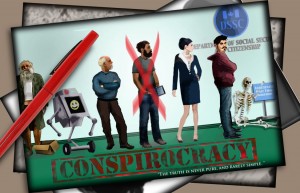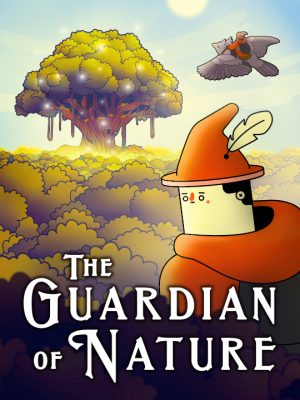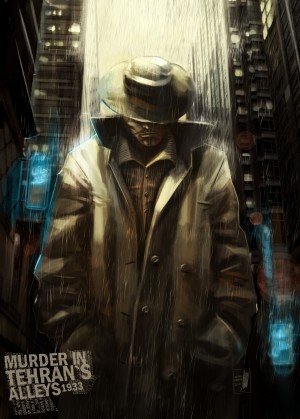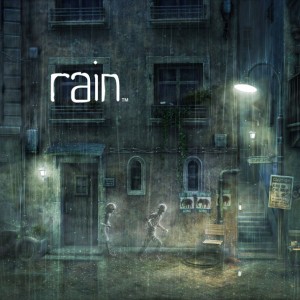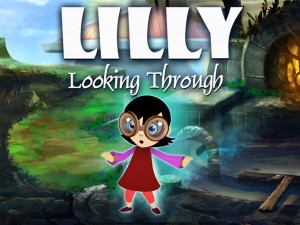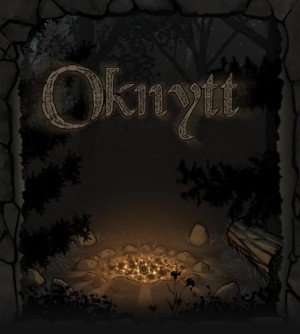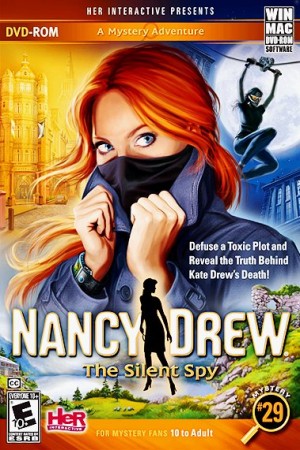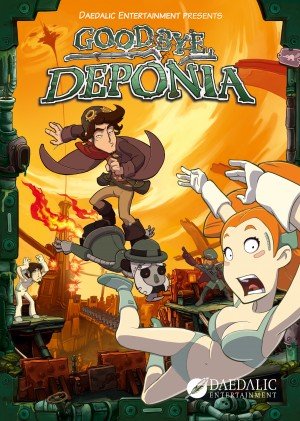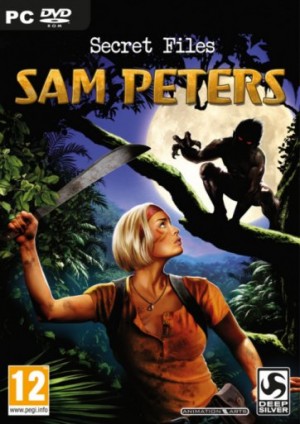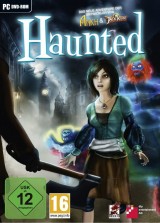Review for Conspirocracy
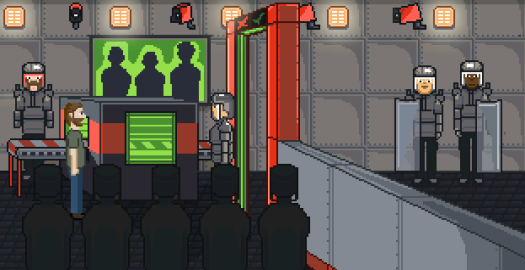
Ever had one of those days when you could swear that the world's out to smother you in red tape, arbitrary rules and bureaucratic mishaps? David Poulson, high school English teacher from Toronto, is having one. And, as it turns out, they really are out to get him.
Inspired by Bureaucracy, Douglas Adams's hilarious satire on the perils of… well, bureaucracy, Conspirocracy takes aim at arbitrary rules and jobsworth officials while also taking the time to highlight issues such as women's rights in the former Soviet republics and the state of public transport. For the most part, the game’s air of bemused whimsy keeps it feeling fresh and funny rather than stern and preachy, even if it runs out of gas towards the end.
In a cheery nod to its inspiration, the game begins with a form, asking you everything from your name to your least favourite Beatle (correcting it to Ringo if you were weird enough to vote for anyone else) and the stationery item you most identify with. (I put "pencil", only to have it come back with, "I take it you've made a lot of mistakes lately?") In a neat touch, the form also includes a checkbox for first-time players which brings up a brief interface tutorial where you play the bureaucrat assigned to process the form. Even though the controls are mostly pretty traditional point-and-click, there are a couple of unusual features, so this is worth going through the first time you play.
As you join the game proper, David is awaking to what will probably be the most stressful, and definitely the weirdest, day of his life. It all begins with a letter from his landlord. Not so much a letter, really, as an eviction notice. You see, his rent hasn't been paid, and it hasn't been paid because his bank account has just been closed. And his bank account has just been closed because he's dead. Or at least the government, in its bureaucratic wisdom, has decided he's dead, and as per the rental agreement his landlord isn't obliged to rent to "vampires, zombies and other vitally challenged persons." If David wants to convince his landlord he's not vitally challenged or likely to drink his blood, he's going to need a Writ of Vitality Adjustment from the Department of Social Security and Citizenship.
Now, you might think that's annoying but not really a problem. Playing as David, all you should have to do is point out that you are, in fact, alive, and they should be able to sort things out. In the world of Conspirocracy, though, it was never going to be that easy. Instead, you are directed to the Bureau of Needless Exposition, who aren't going to be fooled into thinking you’re alive just because you’re calling them; after all, you might be a "hallucination, incorporeal spirit, schizophrenic episode or a metaphor in a graduate essay on Solipsism." Scream at them as much as you like (and there's an option for that), they won't budge until you come back with your original birth certificate and a Certificate of Life from a doctor.
But David was adopted as a baby from the Republic of Chickenistan (a brutal ex-Soviet republic ruled by a chicken that was elected as a joke) and the medical centre is so backed-up that it'll be weeks before you can see the doctor. (Not to mention that the robot receptionist has a zombie defence mode for occasions such as this.) And, to cap it all, without a bank account you have no money. Armed only with your wits and bus pass, you'll have to help David get his life back and find out what's really going on.
Along the way, you'll meet Seabiscuit the class IV vagabond, a bank manager who has decided his filing cabinet is much safer than the bank's state-of-the-art vault (and then managed to lose the key), and a bunch of striking postal workers with startling demands, among others. The game is full of entertainingly offbeat characters, and their often hilarious dialogue is definitely one of the highlights.
As are the puzzles, at least for most of the game. Part of the recent trend towards retro-inspired adventures, Conspirocracy is more old-school than most, for better or worse. The better is that it largely serves up challenging, logical, well-integrated puzzles. The worse is that you have to deal with instant death, hunger and thirst timers, a stress bar and a limited hint system.
The puzzles are mainly inventory-based, though there’s no need to combine items; the challenge lies more in the number and variety of steps required to complete your goals. You’ll need to be observant to spot the items you need, but that’s more because they’re hidden in plain sight than because there’s much need for pixel hunting. (The game is not entirely free of that, but there were only a couple of occasions where I found it a problem.) As you might expect with such an eclectic cast of characters, there are some fun dialogue puzzles too, not to mention a few logic puzzles and (unfortunately) a sound puzzle I could really have done without. In general, these are nicely integrated and should give lovers of old-school puzzles something to get their teeth into.
Where games such as Gemini Rue have shown just how much graphical beauty can be packed into a few pixels, Conspirocracy keeps things straightforward, with simple shapes and minimal shading. It's all smoothly animated and it doesn't look ugly, just ordinary. It's interspersed with cutscenes consisting of a series of static, comic-style images, and these are more stylishly done; it's just a shame the same sense of style doesn't extend to the rest of the game.
One place the graphics do stand out, however, is in the initial map. Where many games are content to give a 2D roadmap-style static view of the wider environment, here you're treated to several city blocks in isometric 3D, complete with cars and working traffic lights. Rather than click on a hotspot to get from place to place, you have to actually walk the streets. This gives a really nice open feel and means the locations feel much more cohesive, like parts of the same place rather than little self-contained islands. One of the puzzles even depends on understanding the relative positioning of different buildings. The traffic also injects a bit of life, giving you the sense that you're walking around the centre of a bustling city. Another interesting twist is that many of the locations have to be discovered by simply walking around, and even when you're told broadly where you need to go you still need to actually find the place. Don't worry, though; the map covers only a few blocks, so you can't get lost and you won't wind up wandering aimlessly.
Overall, the map system is a breath of fresh air. The only criticisms I'd make are that, if you're stuck and wandering from place to place trying to shake something loose, all that walking around can get tedious, especially combined with the fact that you can't run or exit locations quickly. Also, a couple of the locations are out in the open, and you can wind up being pulled out of the map view unexpectedly just by walking down the wrong section of sidewalk. Finally, the traffic is, if anything, too realistic: you'd better look both ways before crossing the road or you risk being run over. You do get a couple of warnings about this, but if you carry on your reckless ways the game is quite happy to kill you. And unlike many more modern games, that's no small thing. You're not just resurrected back on the sidewalk and admonished to be more careful in future, you actually have to go back to your most recent saved game.
That's one blast from the past I could have done without: instant death abounds, and you'd better get back into your old "save early, save often" habits or face frustration. To be fair, most of the time the wrong choices are pretty obvious (telling airport security that the purpose of your trip is to be a drug mule is never going to end well), and you'll generally have a chance to save before tackling risky situations. You'll just need to keep your wits about you a bit more than you’ve become used to of late. It's also worth noting that the game doesn't autosave your position, so you'll need to save before quitting each game session. It's amazing how accustomed I've become to having a "continue" option and relying on the game to keep my place for me.
Another mildly frustrating feature is timed events, such as hunger and thirst timers. One puzzle in particular requires you to set up two limited-time situations and act while they're both still active. These aren't a big element of the game, though, and the timers are both pretty easy to deal with when you know how. There's also a stress meter for you to keep under control, but I found that it was actually quite difficult to push it to its limit and there are a number of in-game activities that can help.
On a few occasions, you'll have to take a bus to get around. For each bus that arrives, you're given various statistics (such as how recently it was maintained, and how noisy and smelly it is) and asked whether you want to take it or wait for the next one. Pick well, and you'll have a relaxing, stress-relieving journey; pick badly and your stress will go up instead. There is a logic to it and it's not too difficult to work out if you pay attention, but good buses seem to be fairly rare. I often had to let half a dozen go by before I got one that fit the bill. Avoiding stress for my character meant more stress for me; for all that it was possibly a valid comment on the state of public buses today.
Musically, the game is filled with tunes that are catchy enough to keep the mood light and fun without pushing themselves into the foreground. There's a nice range of styles too, from a Latin dance number in the local Mexican restaurant to eastern-inspired themes when you reach Chickenistan. The voice acting, too, is well done. On occasion, the lead actor seems to take his job a little too seriously, investing everyday lines with more gravitas and dramatic pauses than they deserve, but overall it feels natural and without the misplaced emphases that blight a lot of voice acting in adventures. The weakest audio part is the sound effects: they do the job, but they're limited and you rarely notice them.
The interface is pretty standard: right-clicking cycles you through options to walk, examine, interact/talk and use, and left-clicking applies the currently-selected action. Where it gets different is that you also have two additional icons: a cellphone and a tablet computer. The cellphone (not surprisingly) is used to make calls, but the tablet is where your inventory lives. Yes, you read that right: anything you pick up is somehow transmuted into an icon within the tablet's bag app. (There are also other, more conventional, apps that occasionally come in useful.) From a practical point of view, it works fine and the tablet automatically opens the bag app when you click on it, so it winds up feeling like a conventional inventory that also happens to have apps. It's just conceptually rather odd – though I suppose it does explain how you're able to carry so much around without even a bulge in your pockets.
Just to shake things up, there are also a few minigames to play, from office putting to a fighting game, but don't worry: they're intended as jokey diversions and are very easy. At one point, the view changes to a 2D overhead view reminiscent of ‘80s games like Gauntlet (but thankfully without the combat). Elsewhere you’ll have to navigate a maze, but in an overhead view that makes it pretty straightforward. No twisty little passages here, though it is retro enough to tell you that "violence is not the answer" at one point.
An interesting aspect of the hint system is that it's not just an option you have to enable or disable in the game's settings, but something you have to find and activate in the game itself. Once on, location-specific hints become available through a new tablet app, which simply walks you through all the puzzles involving your current location, regardless of whether you've solved them or even encountered that puzzle yet. But the hints themselves are very definitely hints: they stop short of providing full solutions. In some cases, for example, it will tell you that there are useful objects in the room, but not how many or what they can be used for. That's one occasion where context-sensitivity could have been really quite helpful. If the hint had disappeared when I'd picked up everything useful, I'd have spent less time pixel-hunting at locations where I'd already found everything.
There's plenty to see and do in Conspirocracy, with around 5-8 hours of playtime. And for about the first three-quarters of that, it's a roaring success, with oddball characters to meet, a range of solid, nicely-structured puzzles to challenge you and a non-linear, open feel. Towards the end, though, all the air starts coming out of the experience. The non-linearity disappears and you find yourself moving between mostly self-contained scenes. The characters get more stereotypical and the puzzles become either straightforward or obscure. At one point, even the hint system admits that a particular puzzle is totally unfair, as the game suddenly breaks the fourth wall.
Things pick up a bit for the finale, and some of the comic dialogue returns, but it still doesn't feel as vigorous as in the early stretches. I won't spoil it, but when it is finally revealed, the idea behind the underlying conspiracy is brilliant; it just feels like the developers were starting to get tired in the lead-up immediately before it.
It's worth pointing out that there's a definite liberal conscience at play here. Starting with the opening form that offers three gender choices (male, female and intersex) and carrying on with David’s exasperated reaction to the latest curriculum changes and a customs official's barbed comments about the state of human rights in Chickenistan, the game doesn't exactly have an agenda but it's pretty clear where the developers' sympathies lie. It's done with a light touch, but those of a strongly right-wing disposition should consider themselves warned.
Ultimately, Conspirocracy can't quite live up to its inspiration, but it has a jolly good try. It's an entertaining experience, but lacks the ambition to be a truly great one and never really makes the most of its underlying grand conspiracy. The puzzles start out satisfyingly tangled and logical, but become more linear toward the end – generally simpler than before and yet suddenly very obscure at times. In fact, the whole game just runs out of steam a little towards the end, which somewhat diminishes the enjoyment of reaching that point. It's well worth playing despite its stumble to the finish line, however, just so long as you can live with its unapologetically retro trappings. It isn’t quite Nineteen Eighty-Four, but it’s definitely early ‘90s.
Our Verdict:
Conspirocracy offers some meaty puzzles and more than a few chuckles that make it well worth playing, but it runs out of steam somewhat and lacks the ambition for true greatness.


